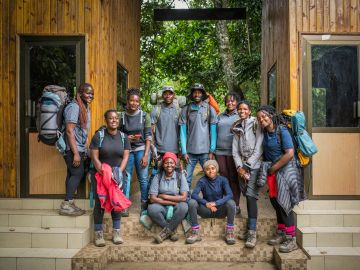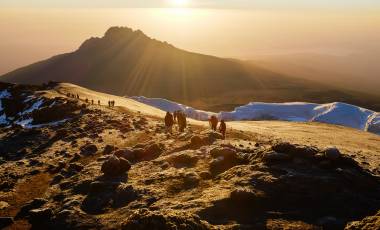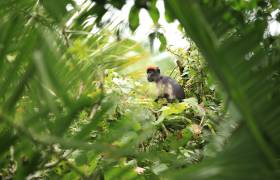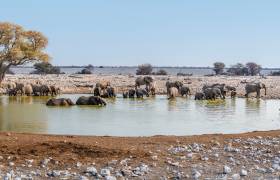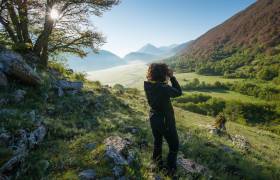Kitaba Wadia Kapanya, one of our newly qualified lionesses explains, “I hope we will be seen as an inspiration to other women in the local community and encourage them to follow their dreams of becoming a mountain guide”. Read on to see the full story of how our first 30 lionesses graduated to become qualified guides through the Mountain Lioness Scholarship, and are ready to take on Mt Kilimanjaro.
German geology professor, Hans Meyer, may have been recorded as the first-ever person to make it to the summit of Kilimanjaro with a support team including two local tribe leaders and nine porters, in 1889, but it was skilled climber, Gertrude Benham, who managed to make it to the roof of Africa alone in 1909. Against all the odds, Gertrude’s sheer resilience and perseverance allowed her to tackle this 5,895m ascent, effectively paving the way for other trailblazing women to follow in her footsteps. However, after more than a century, local women are still struggling to be recognised for their skills to become professional porters and guides on Mt Kilimanjaro.
Ancestral knowledge and bush skills have been passed down from generation to generation between men in Tanzania, leaving a large gender divide when it comes to hiring porters and mountain guides. However, times are changing. Just 10 years ago there were no female porters or guides on the mountain, but now numbers are slowly climbing thanks to the courageous, female porters that defy social stigmas to work alongside their male counterparts on Kilimanjaro.
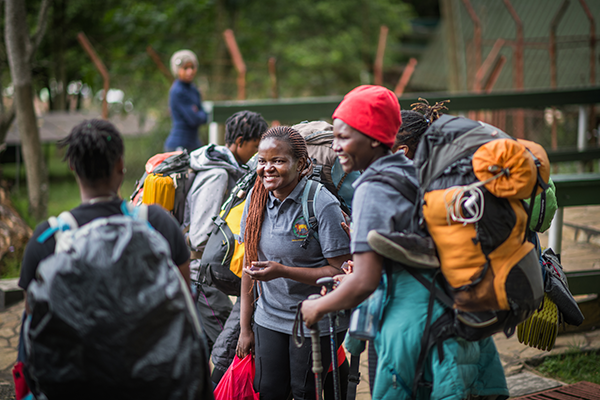
In Tanzania, the Swahili word for “porter” is “Ngumu” which literally translates to the word “tough”. And this is exactly how we would describe our female guides. To truly celebrate these remarkable women and inspire others to get their guide qualifications to climb to the roof of Africa, we launched our Mountain Lioness Scholarship in March 2020, with the help of our partners, Robertson Outdoor Bursary. One of the first women-only guide training programmes of this kind to be introduced in Tanzania, the scholarship itself was named after Lucia Kivoi. Nicknamed “lioness” because of her trailblazing spirit as a Senior Guide, Kivoi helped to effectively spearhead the acceptance of female porters and break down gender barriers on Kilimanjaro.
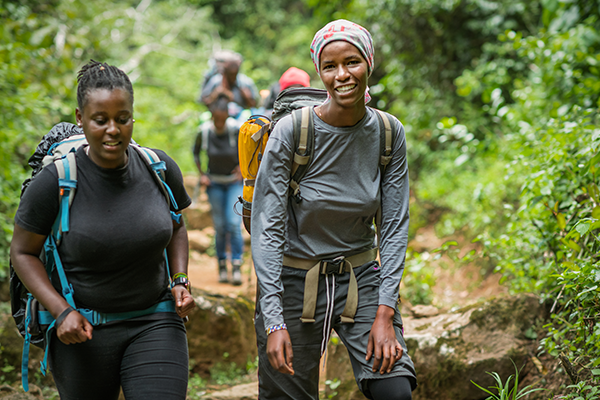
Many women in the communities surrounding Mt. Kilimanjaro struggle to stay afloat. With a high number of young single mothers and widows in Tanzania, women have had to become head of their households and be solely in charge of taking care of their families. Over the course of three years, we’re looking to help women in the community by enabling 30 women to train as mountain guides so they can receive their Guide License – an essential requirement for anyone wanting to guide in Mt. Kilimanjaro National Park. Obtaining a Guide License will help our lionesses to significantly increase their employment opportunities while also offering them a stable source of income so they can fully support their families.
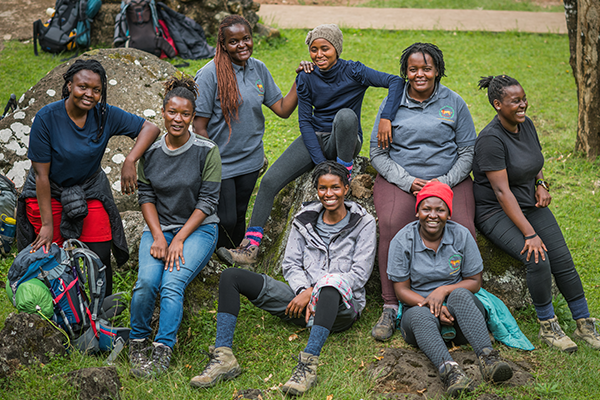
Despite the detrimental impact the global pandemic had in communities across Tanzania, our resilient teams and local operators on the ground were determined to push forward with the recruitment process and training that we had envisioned for the first year of the Mountain Lioness Scholarship programme. Thanks to their dedication to the cause, we’re extremely proud to announce that our first 10 lionesses completed their mountain guide training in November 2020, with the next 20 lionesses completing their training by September 2024.
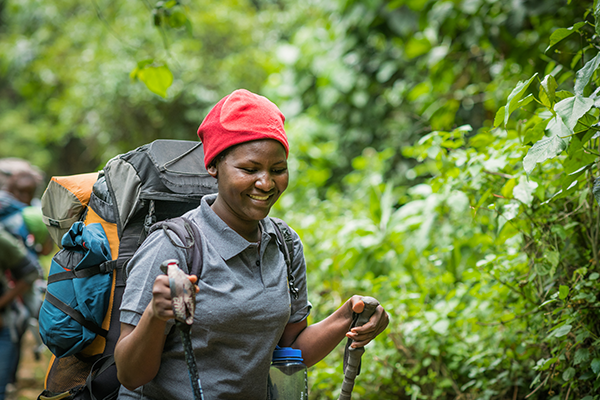
Talking with one of our newly qualified lionesses, Kitaba Wadia Kapanya, she’s explains, “I hope we will be seen as an inspiration to other women in the local community and encourage them to follow their dreams of becoming a mountain guide”. Kitaba smiles and continues, “They’ve all closely watched our journey from the first days of training right through to our last day before our Graduation Ceremony – and you can see that a lot of these women are now motivated and have the confidence to follow our lead. I hope these women get the same opportunity through the scholarship. Being a porter or mountain guide was always seen as a man’s job, but I think this is about to change.”
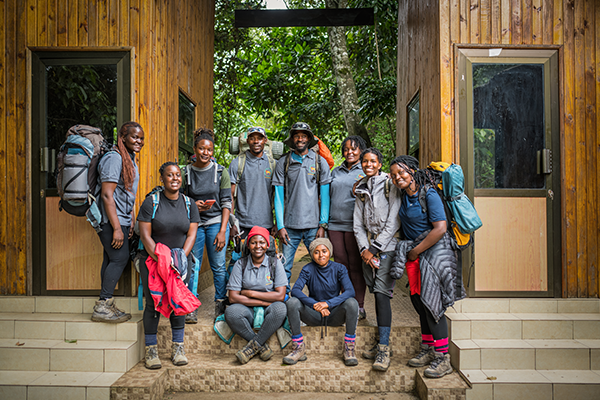
Taught by teachers from the esteemed College of African Wildlife Management in Mweka, located on the southern slopes of Kilimanjaro, the 3-week intensive training course focused on equipping the lionesses with essential guide skills they need to become a fully qualified guide on Kilimanjaro which included modules in first aid, emergency care and wilderness rescue, mountain ecology, mammal identification and tour guiding techniques. Within a week of starting the programme, we were told our lionesses paused their training to selflessly volunteer to help local villagers and firefighters stop the threatening wildfires on Kilimanjaro’s slopes before completing their scholarship.
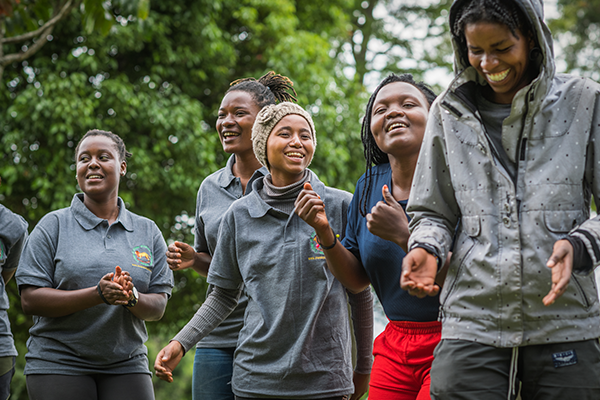
After passing extensive field practical training and final examinations, the lionesses were awarded their Guide License to work on Kilimanjaro at their Graduation Ceremony which took place under the Marangu Gates of Kilimanjaro. Standing at an altitude of 1870 meters above sea level, the Marangu Gate marks the beginning of many traveller’s journeys to conquer the roof of Africa, so it’s only fitting that this spot is also where our lionesses celebrate the beginning of their own journey into becoming successful women guides on the highest single free-standing mountain in the world.
By September 2024, 30 mountain lionesses had graduated from the program, with our final two graduates – Claudia Mrema and Eunice Joseph – both passing their exams with flying colours. We’re even more excited to be funding the Becoming Even Better program in 2025, which will provide graduates of the program with the opportunity to further develop their guiding knowledge and skills to keep their clients safe on the mountain, and offer them a first-class guiding experience. This additional training will also give them give a competitive advantage in finding employment.
Crista Cullen, Olympic gold medallist hockey player, conservationist and former Trustee of the Exodus Adventure Travels Foundation comments, “Climbing Mt. Kilimanjaro alongside some of these men and women porters while filming the Exodus documentary, Ngumu, I was exposed to their physical and mental determination. This, coupled with having to develop some of the skills which are needed to take the steps from porter to guide, are imperative proficiencies for their onward progression. I look forward to seeing the progress of this programme develop and hope it can support the porters into being aspirational and limitless.”
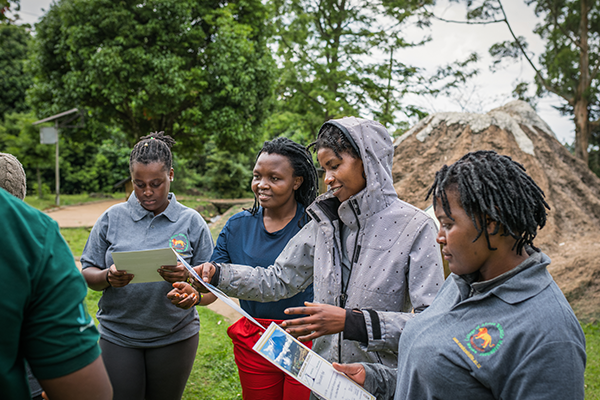
These women provide a shining example to others in the communities surrounding the base of Kilimanjaro. The strength, perseverance and resilience shown by these 30 women in the face of adversity have helped to pave the way for real change when it comes to shifting perspectives of gender equality in Tanzania. Kitaba poignantly adds, “No matter if it’s women or young girls – as long as they’re passionate, they can do this. As long as they have that unrelenting passion. Women can do any job. If their heart is in it, there’s nothing they can’t do.”
